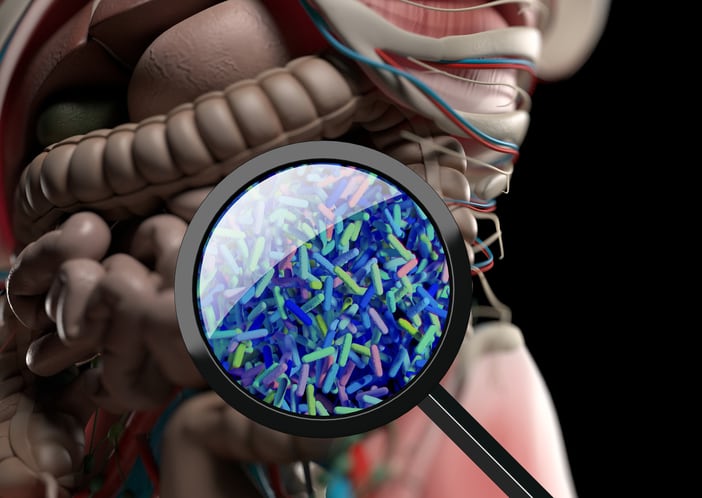Hypertension is the most prevalent modifiable risk factor for cardiovascular morbidity and mortality affecting more than 1.3 billion people worldwide.
The gut microbiome has been shown to be an important determinant of inflammation, obesity, type 2 diabetes and arterial stiffness, all of which contribute to the risk of hypertension. And recently, human studies have identified lower gut microbiome diversity and specific gut microbes are also associated with hypertension. However, human studies are typically small, lack independent replication and there is a lack of population-based evidence.
The current study is the first to investigate the association between hypertension and gut microbiome composition. The researchers looked at the relationship between hypertension and the loss of microbiome composition and with specific genera in a sample of 871 people from the TwinsUK registry (a national register of adult twins recruited as volunteers).
The team then replicated the results in an independent population of 448 women from the UK-based PREDICT 1 study and further genomically characterise the hypertension-associated microbes using their 16s rRNA sequences.
Their resulting data suggests gut microbiome diversity is inversely associated with hypertension in women. They also specifically identify two genera with a clear correlation to hypertension - an uncultured genus of the Erysipelotrichaceae family, whose relative abundance is higher in hypertensive cases and that of Ruminiclostridium 6, whereby abundance was lower in hypertensive individuals.
The authors note the results are only application to middle-aged white female twins and the cross-sectional nature of the data does not allow for inference of cause and effect.
Functional annotation of Ruminiclostridium suggests its involvement in 84 pathways, almost all of which related to pathways in metabolism. Moreover, the majority of the metabolic pathways were present in all genomic sequences, implying a high homogeneity in the metabolic functional capabilities among the different species of Ruminiclostridium. A number of these pathways have been previously implicated in BP regulation. For instance, tryptophan biosynthesis and metabolism has been linked to SBP, while thiamine metabolism has also been correlated to hypotension in murine models and thiamine supplement studies.
The researchers say more research is required to comprehensively understand the mechanisms by which Ruminiclostridium can influence hypertension.
Animal models and case studies of patients have shown that members of the Erysipelotrichaceae family are significantly increased in a number of inflammatory conditions, such as irritable bowel syndrome, colorectal cancer and rheumatoid arthritis with anticitrullinated protein autoantibodies, suggesting a pro-inflammatory effect of this bacterial family on the host. Previous studies report an association between abundance of Erysipelotrichaceae family members and host lipidemic profile, particularly relating to cholesterol levels. However, after adjusting our analysis for levels of total cholesterol, the association between hypertension and Faecalibacillus remained statistically significant.
Source: Journal of Hypertension
Louca, Panayiotisa; Nogal, Anaa; Wells, Philippa M.a; Asnicar, Francescob; Wolf, Jonathanc; Steves, Claire J.a; Spector, Tim D.a; Segata, Nicolaa; Berry, Sarah E.d; Valdes, Ana M.a,e,; Menni, Cristinaa,
"Gut microbiome diversity and composition is associated with hypertension in women"
doi: 10.1097/HJH.0000000000002878





